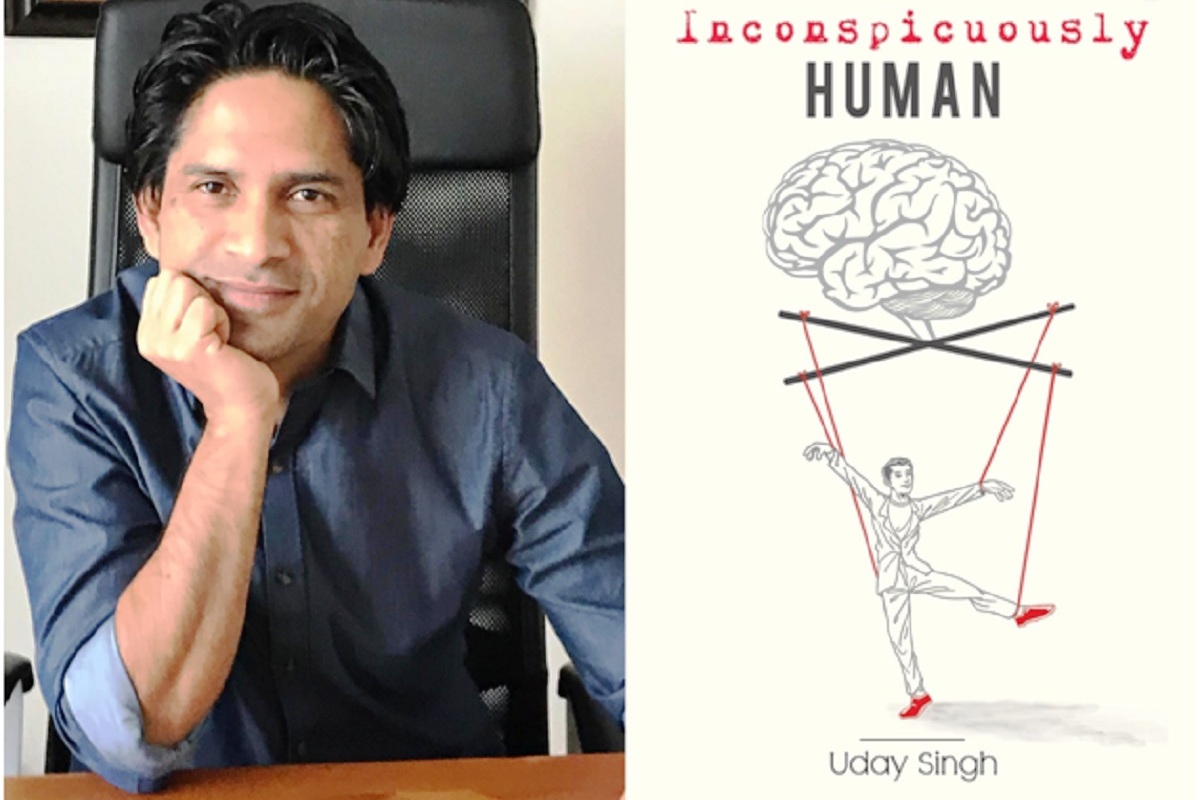There are rare few occasions in our lives when we chance up on a new discovery or a movie or a book that changes the way we perceive and respond to the world around us.
‘Inconspicuously Human’ is one such book. This book delves into questions about our brains, how we think and the multitude of inconspicuous factors that influence both our thoughts and actions. The book captures engaging and insightful psychology- and sociology-related experiments that shed light on to the hidden hallways of human nature.
The book is filled with fun anecdotes that serve as backdrop for the experiments, has details of those experiments themselves, and cleverly draws out counterintuitive insights from those experiments. Equally important is the choice of experiments captured in the book, which is based on how actionable the experiments’ findings are for the majority of the readers.
Advertisement
‘Inconspicuously Human’ is well researched, and there are times where one may almost find it visionary. Its counterintuitive insights are usually derived from concepts that may seem unrelated at first glance, such as the life cycle of the jellyfish or discoveries made in the field of cellular biology, but as you go through the book you can’t help but see the relevance of such seemingly unrelated concepts to the way we arrive at our preferences and behaviours.
The book can be considered a companion to Freakonomics by S Dubner & Steven Levitt. These books present a series of experiments that explain our behaviours when we are subjected to certain conscious, and in some cases subconscious, constraints. The behaviours may not seem rational, but as we dig a little deeper and go along with the author’s arguments, we will find ourselves understanding the logical basis behind such seemingly irrational behaviours.
The skeptics amongst us might question the applicability of animal psyche experiments to human behaviour. But, as the author calls out our attention specifically to this in the prologue to the book, behaviours observed in animals can generally be chalked down to the basic instincts or our inherent animal tendencies. This book will bring to fore our animal tendencies that are most likely embedded in our genes, and by creating that visibility it allows us to gain greater control over such tendencies.
Another interesting aspect about this book is the “Author’s free-form perspective” which is captured as a separate section at the end of each chapter. These sections provide a very personal take on the scientific studies and their findings, on how someone can interpret them, and on how they affect them. Although these sections were highly engaging and extremely enjoyable to read, if one were to pick up this book the intent of solely going through the science and nothing else, then they can safely skip these sections altogether.
What makes this book a treat to read is how much more nuanced it is. The author has done an excellent job of keeping the writing straightforward and easy to understand, thus making it an intriguing read for everyone and not just for the academics. Apart from being very well written and well structured, ‘Inconspicuously Human’ does a great job of broadening the readers’ perspectives on certain aspects of our personalities that we might not even have been aware of. The speed and impact with which these revelations hit the readers, as they go through each of the chapters, will make it impossible for the readers to put the book down.
The book delves into varied topics – subconscious constraints of culture as well as how does culture get established in the first place, subconscious limits we might impose on ourselves, exploring the existence of fair treatment at the genetic level, the nature of entitlement, and so much more.
Although, some of the topics covered in the book may seem like unrelated or disjointed, they all eventually coalesce in a seamless whole by the end of the book.
The hallmark of a good book is its ability to leave the readers feeling a little bit smarter about themselves than did they before they read the book – ‘Inconspicuously Human’ accomplishes that quite handily right from the first chapter.
Advertisement











